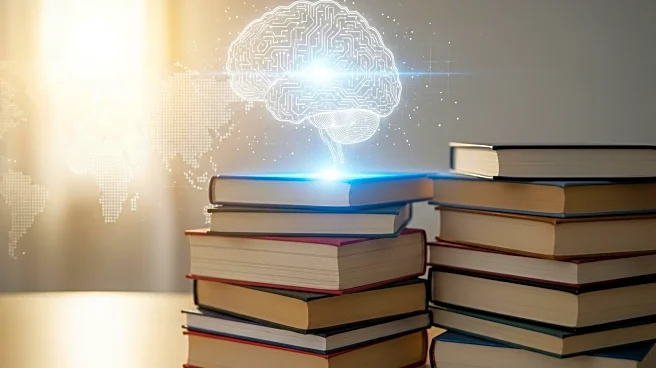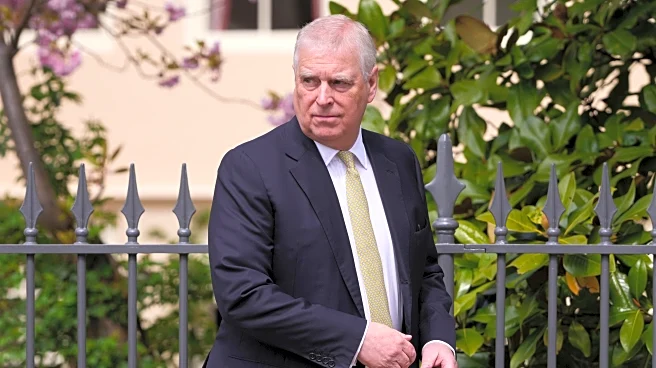What's Happening?
UNESCO has released a report highlighting the potential risks of artificial intelligence (AI) in education, emphasizing the need for robust safeguards to prevent the erosion of human rights and the exacerbation of inequality. The report stresses that digitalization and AI must be anchored in human rights, urging governments and international organizations to prioritize people over technology. Despite the accelerated digitalization of education due to the COVID-19 pandemic, significant connectivity gaps remain, with nearly one-third of the global population lacking internet access. The report also identifies a persistent digital skills gender gap, hindering women's participation in the digital economy. UNESCO calls for urgent efforts to ensure affordable internet access and device availability, highlighting the importance of teacher training and professional development in digital competencies.
Why It's Important?
The integration of AI and digital tools in education holds the promise of enhancing learning experiences and streamlining administrative processes. However, without proper safeguards, these technologies could undermine educational equity and human rights. Vulnerable groups, particularly women, may face increased barriers to accessing digital education, potentially widening existing inequalities. The report underscores the need for ethical frameworks, data protection measures, and inclusive access policies to protect student data and privacy. Addressing these challenges is crucial for ensuring that AI-driven tools support equitable, high-quality education and foster cultural diversity.
What's Next?
UNESCO advocates for a rights-based digital transformation in education, built on the 5C Framework: coordination and leadership, content and solutions, capacity and culture, connectivity and infrastructure, and cost and sustainability. Schools and educational agencies are encouraged to implement privacy-first principles and safeguard against cyber violence and exploitation. The report suggests that AI tools can mitigate negative online activities while promoting peer collaboration and access to digital resources. Ensuring AI systems respect cultural diversity is essential for fostering inclusivity and critical thinking among learners.
Beyond the Headlines
The report highlights the ethical and cultural dimensions of AI in education, warning against the homogenization of linguistic heritage and diversity. AI systems often reflect mainstream cultural norms, which could threaten cultural rights. UNESCO urges educational institutions to ensure AI tools represent cultural diversity, supporting the right of all learners to engage with a broad spectrum of cultural knowledge. This approach is vital for promoting inclusivity and critical thinking in education.










